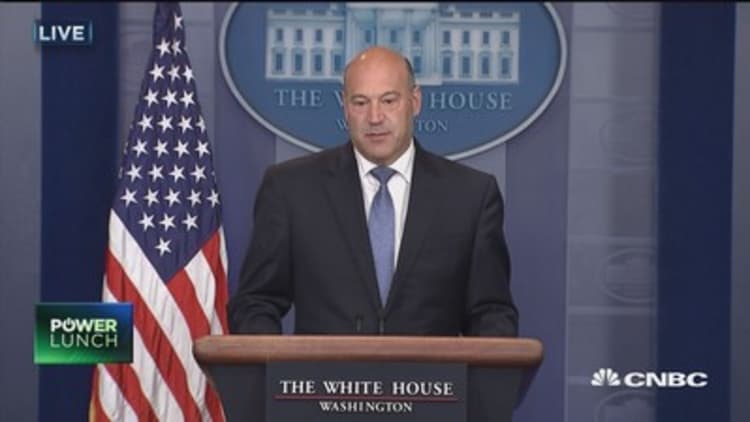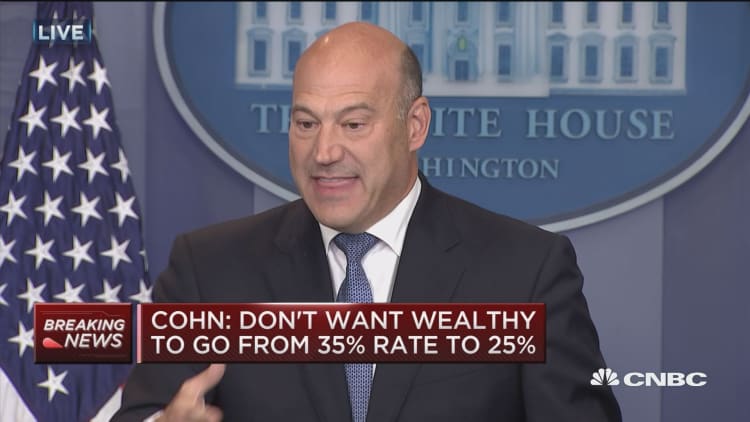
Profits that companies are holding overseas would be brought back home at a tax rate that looks to be around 10 percent, according to current White House estimates.
Gary Cohn, the chief economic advisor to President Donald Trump, said the tax reform plan the administration supports seeks to bring back what could be $3 trillion in offshore wealth, but at a reasonable rate.
"We are not giving companies the choice. They are going to pay the rate if they have the money overseas," Cohn said Sunday on Fox News' "Sunday Morning Futures" program. "That's how we catch up from the worldwide system to the territorial system."
The territorial system applies levies to profits earned only within a country's borders. Though that's the type the administration seeks, it's looking for a cash infusion from companies who have stored their profits abroad to avoid the highest-in-the-world corporate tax rate in the U.S.
Under the proposal outlined last week, companies will pay a "bifurcated rate" on the overseas cash, Cohn said.
Profits held in liquid assets like cash would face a higher rate, while that held in illiquid asset like plants and property would face a lower rate. Companies with the greatest amount of cash stashed overseas include Microsoft, Cisco and Apple.
Repatriation winners
| Company | Ticker | Overseas cash ($B) | As pct of market cap |
|---|---|---|---|
| Cisco | CSCO | 68 | 37 |
| NetApp | NTAP | 5 | 36 |
| QUALCOMM | QCOM | 30 | 35 |
| Apple | AAPL | 216 | 25 |
| Amgen | AMGN | 36 | 24 |
| Oracle | ORCL | 48 | 22 |
| Microsoft | MSFT | 128 | 20 |
| Ralph Lauren | RL | 1 | 20 |
When all is said and done, the rate will be "in that 10 percent range," where there will be "one rate if you have have liquid assets offshore and another rate if you have bricks and mortar offshore. We will give you some period of time to pay it, but you will incur the tax liability the minute the referendum goes through."
The rate is about in line with what Wall Street has been expecting.
During his election campaign in 2016, Trump had been talking about a 10 percent rate. A similar Republican program had expected to tax 8.75 percent on cash and 3.5 percent on other assets. The current plan doesn't specify the rate structure, though Cohn's comments about a two-tiered system resemble the GOP plan.
After the repatriation levies are enacted and the taxes collected, companies won't pay any taxes on overseas profits. The hope is that the money brought back home will be used to grow the economy through research and development, capital spending and hiring. However, Cohn said he's not worried if a big chunk gets returned to shareholders, as that in itself will lead to more spending and growth.
Ultimately, the hope is that there will be less incentive to keep cash abroad after the U.S. lowers its corporate rate. The current levy is 35 percent; Cohn said the administration is committed to a 20 percent rate and will not waiver, despite its flexibility on other areas of the tax plan.
The 10 percent repatriation rate also is open to negotiation.
"We've given the tax writers in the Senate and the House the ability to adjust those knobs, adjust those numbers," Cohn said. "It will be in that 10 percent range."
WATCH: Cohn isn't worried if the repatriated money goes back to shareholders.



